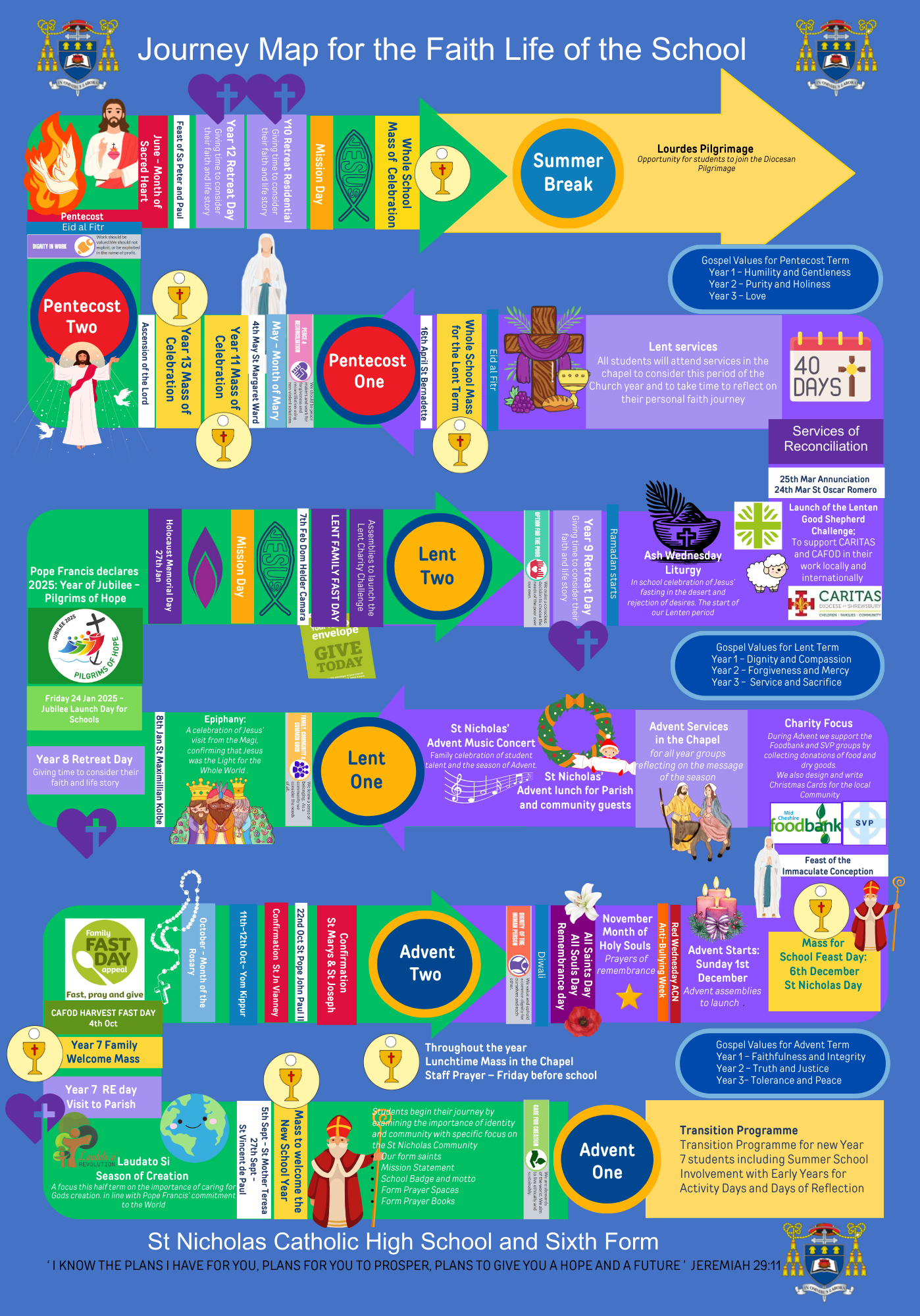Faith Life: Day to Day
At St Nicholas, Religious Education is a core subject, undertaken by all students, which follows diocesan guidelines in Key Stage 3, with a GSCE qualification in KS4. In Sixth Form, Core RE lessons support the students in the mature development of their faith and moral identity and is accompanied by opportunities for service within the school community.
Students share in daily prayers and reflection with tutors during Sacred Space in form time, and with senior staff or the chaplain during Celebrations of the Word. Prayers and reflections respond to the liturgical season or other important events during the year, encouraging students to recognise how their faith is informed and matured through the life of the Church or by considering issues such as democracy, charity or remembrance. Celebrations of the Word take place each week during form time, as well as to mark special events, such as Advent, Lent or Holy Week.
Voluntary lunchtime Masses are celebrated during the year. Whole-school Masses are celebrated on important holy days, whilst special Masses for the wider school community are celebrated to mark events such as the new school year, or for the celebration of Year 7, 11 and Year 13. In all liturgical events, the school is supported by local parish priests.
Days of Reflection take place each year for Year’s 7, 8, 9 and 12. In Year 10, students attend a two-day reflective retreat, which provides an opportunity, in a number of creative and reflective ways, to explore faith and related issues. This encourages positive personal development and a sense of community.
Through our Pastoral Curriculum students focus on key Gospel Values as themes throughout the year. Catholic Social Teaching is woven and embedded through all aspects of our curriculum both Pastoral and Academic.
Every Student engages with the school Mission Days which are drop down events which focus on key themes of Catholic Social Teaching where students are educated on key themes, learn from inspirational speakers and engage in service in the local, national and global community.
The chapel is open throughout the school day for prayer and reflection. Morning prayer or meditation is offered during the week. The Chaplain invites all students to the school chapel, on a number of occasions, to celebrate the liturgical year or to take part in reflective lessons and prayer opportunities. The chaplain is also happy to see students individually for support or to answer any questions they may have.
All charitable work is closely tied into the message of the gospel and is accompanied by prayer and celebration. There is a pattern of responding to local and international tragedies through personal prayer and shared prayer activities. Events such as Remembrance Day or Holocaust Memorial Day are celebrated throughout the school.

